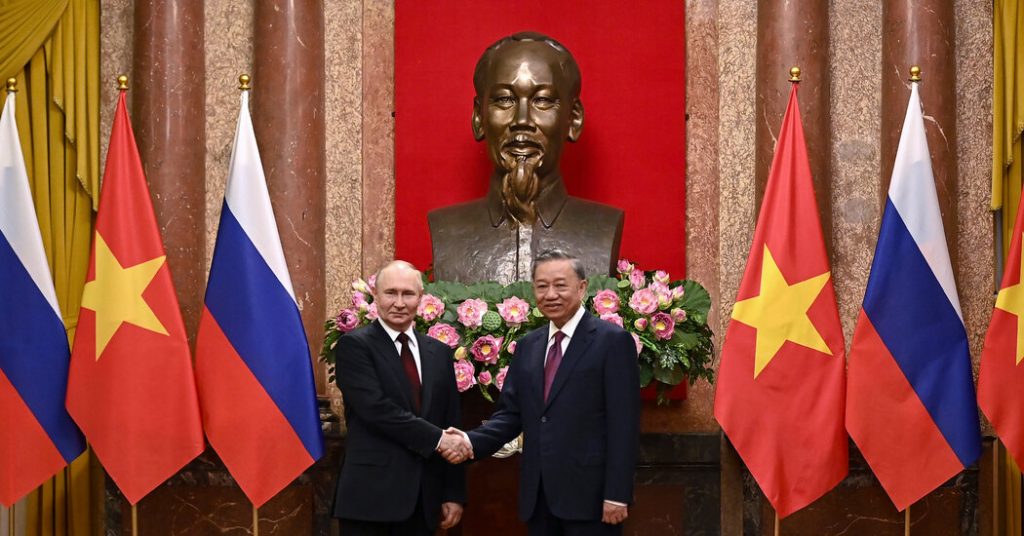President Putin visited North Korea before arriving in Vietnam to strengthen partnerships in the region amid the ongoing conflict in Ukraine. His alliance with North Korea has grown due to their mutual opposition to the United States, resulting in a restored defense pledge. In Vietnam, Putin met with officials who have closer ties with Washington but still rely heavily on Russia for weapons. This visit marks Putin’s fifth trip to Vietnam, emphasizing the nation’s importance as a defense partner.
The military relationship between Russia and Vietnam dates back to the Soviet Union’s support of North Vietnam during its conflicts with France and the United States. Currently, Russia supplies a significant portion of Vietnam’s defense arsenal, including submarines, tanks, and fighter jets. While Vietnam has sought alternative sources of weapons due to concerns about Russia’s reliability and its relationship with China, it remains heavily dependent on Russian military equipment.
Despite growing ties with the West, Vietnam continues to rely on Russia for a majority of its defense supplies. The imposition of sanctions on Moscow has raised doubts about Russia’s trustworthiness as a supplier, prompting Vietnam to explore other options such as South Korea, Japan, and the Czech Republic for weapons. The United States has also increased its arms sales to Vietnam, but leadership remains wary of Washington’s conditions on deals, especially related to human rights issues.
In addition to military cooperation, Russia has a significant stake in Vietnam’s oil and gas sector through joint ventures. Russian firms operate Vietnam’s largest oil field, generating substantial profits for both countries. These partnerships have drawn attention from Beijing, which claims territorial waters where Russian energy projects are located. Russia-Vietnam oil projects have helped offset declines in European oil and gas exports due to sanctions.
Putin’s popularity with Vietnamese officials is attributed to the historical ties between the two nations, stemming from Soviet-era training programs for Vietnamese professionals. The current Vietnamese party chief and other leaders received education and support from Russia, fostering a sense of gratitude for Putin’s efforts to strengthen bilateral relations. Despite past neglect from Soviet and Russian leaders, Putin’s presidency has renewed Vietnam’s appreciation for the alliance.


